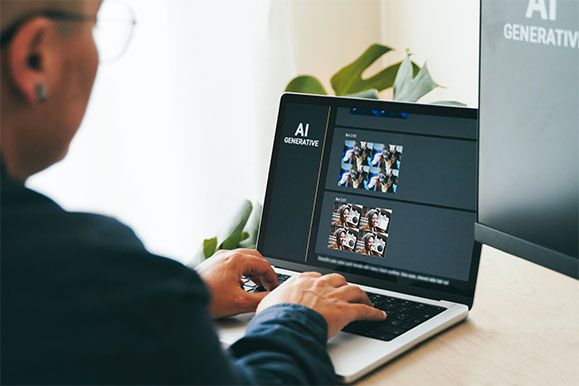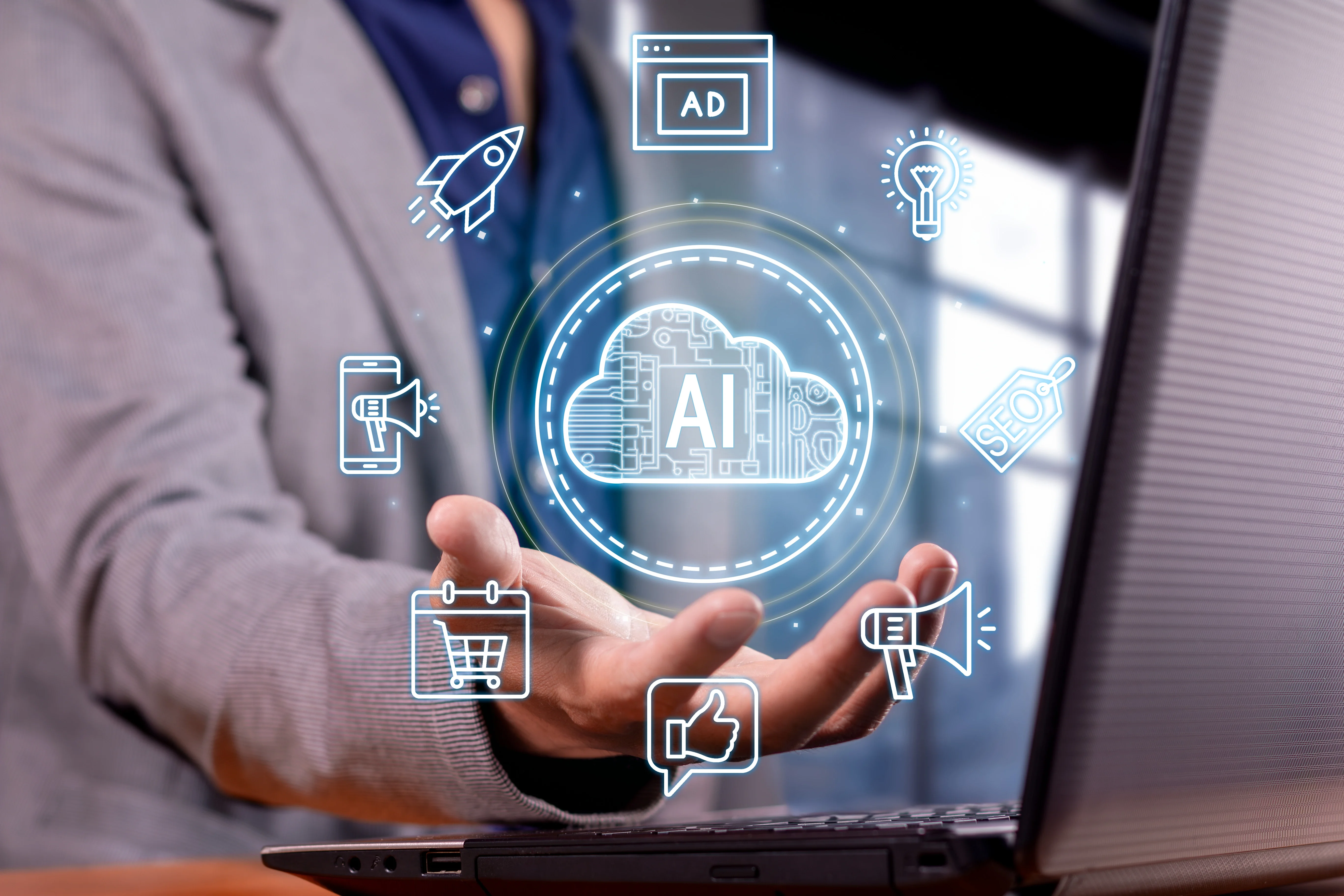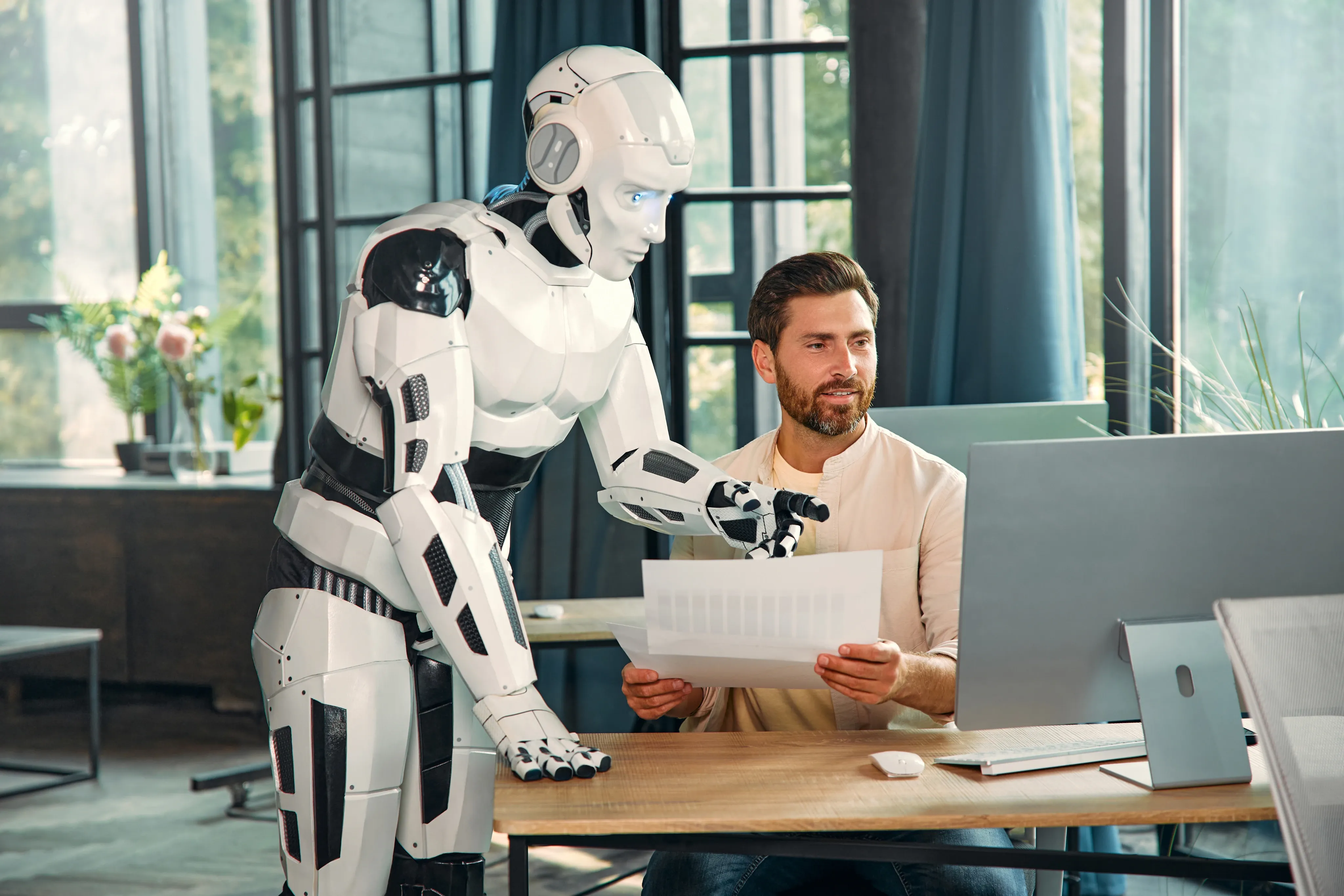With the phenomenal advances of AI in the world of business, one question that sparks lively debates around water coolers and boardroom tables is this: “Will AI replace marketing jobs?”
Looking closely, it’s a valid question and describes a growing concern among marketers from all parts of the globe.
But amidst the buzz and speculation, there's a deeper curiosity driving this conversation. Are the days of traditional marketing roles numbered—will marketing jobs be replaced by AI? In this blog, we’ll unravel the facts and attempt to answer this intriguing question.
Table of Contents
AI is Shaking Up Things in The Marketing World
How AI is Giving Marketing a Boost
Major Roadblocks and Challenges of AI Marketing
The Heart of Marketing and Why Simple AI Struggles to Match It
The Verdict: Our Answer to “Will AI Replace Marketing Jobs?”
AI is Shaking Up Things in The Marketing World
Across industries, from healthcare to finance, transportation to retail, AI's influence is unmistakable, transforming our 21st-century lives. In healthcare, AI-powered diagnostic tools sift through mountains of medical data to offer once unimaginable insights. Meanwhile, in finance, algorithms crunch numbers with lightning speed, predicting market trends and optimizing investment strategies. And let's not forget about transportation, where self-driving cars navigate the streets with a precision that rivals the most seasoned drivers. These are just a few glimpses into the positive impact of AI, illustrating its transformative power across sectors.
The marketing world is not spared by the radical changes made possible by AI technology, making many people wonder if AI will replace marketing jobs. For marketing professionals, that's the million-dollar question.
On one hand, AI is already being used in marketing campaigns, thanks to its ability to analyze mountains of consumer data, automate mundane tasks, and serve up personalized experiences like never before. Marketers who have learned to harness AI tools have already been benefiting for years from greater efficiency, fewer errors, and more.
But does this mean our trusty marketing jobs are on the chopping block? Will AI swoop in and steal the spotlight, leaving human marketers out in the cold?
How AI is Giving Marketing a Boost
Before we try to answer, “Will AI replace marketing jobs?”, let's take a look at the nitty-gritty of which marketing tasks AI has already dipped its toes in.
Marketers are already using AI algorithms like silent detectives, combing through reams of business and marketing data with outstanding precision. AI is also being used to streamline data analysis, from crunching numbers to uncovering patterns. This has effectively freed marketers from the tedious task of manual data analysis.
A major responsibility of marketers—content creation—has become far easier to accomplish using AI technology. AI-powered tools are becoming increasingly sophisticated and capable of streamlining the content creation process. They're able to generate virtually everything marketers need with startling accuracy, from blog posts to social media updates. It's like they suddenly got an AI assistant at their fingertips, ready to churn out content at a moment's notice.
Customer service, while not always considered a marketing task, has also been transformed by AI. Chatbots powered by AI marketing technology have been making waves in this arena for a couple of years now. Chatbots are able to provide unwavering, round-the-clock support and answer customer queries with lightning speed—something that human customer support staff might struggle with.
AI is also flexing its muscles in delivering targeted ads and personalized product recommendations to. It's a whole new ball game, and we're just scratching the surface of what AI can do in the marketing realm.
Major Roadblocks and Challenges of AI Marketing
Given all of those capabilities, it’s easy to get swept away by the allure of using AI in marketing. However, let’s take a deep breath, step back, and look at the scene with fresh eyes.
In spite of all its merits, using AI for marketing comes with some roadblocks and challenges. First, although AI excels at crunching numbers and analyzing data, it often falls short in the creativity department. In short, AI creativity still has a long way to go before it could match human creativity.
Sure, AI tools for marketing can generate content at lightning speed, but (at least, as of this writing) it has a really hard time capturing the nuances of human emotion. While it can give you hard facts in just a matter of seconds, no matter how many days you give it, it’s unlikely that AI can craft a compelling brand narrative for your business. And speaking of narrative, forget about humor and storytelling—two things that only humans (so far) can deliver with great mastery.
Another major flaw of AI revolves around the issue of bias. AI algorithms are only as good as the data they're trained on. This means they can inadvertently perpetuate biases present in that data. Businesses need to be really careful with AI-generated content and processes because although AI technology in itself may be neutral, its data sources may not be.
Businesses that use AI might unknowingly commit gender bias in their ad targeting, racial bias in their hiring algorithms, and so on. As you can imagine, the implications are far-reaching and require meticulous navigation.
So, as we venture further into harnessing AI in marketing, let's keep our wits about us and approach with caution. After all, while AI offers tantalizing possibilities, it's not without its challenges and pitfalls.
Creativity, equality, and empathy are just a few aspects where human marketers still hold the upper hand.
The Heart of Marketing and Why Simple AI Struggles to Match It
While AI may dazzle us with its algorithms and data-crunching capabilities, there's something inherently human about the art of marketing that AI simply can't replicate.
A human marketer can craft a story that resonates with audiences on a deep emotional level, tapping into their hopes, fears, and dreams. AI just cannot do this.
For instance, consider the iconic Coca-Cola Christmas campaigns. Those ads don't just sell a product; they evoke feelings of warmth, nostalgia, and togetherness in their audience. That’s why they became ingrained in the cultural fabric of the holiday season. It forges the kind of connection that transcends mere data points and algorithms.
And, again, let's not forget about creativity. While AI can churn out content at lightning speed, it lacks the spark of human creativity—the ability to think outside the box, to challenge the status quo, to delight and inspire people.
Take Nike's "Dream Crazy" campaign featuring Colin Kaepernick. This bold and provocative ad not only sparked conversation but also ignited a movement, showcasing the power of human creativity to drive social change. In the end, it's these human qualities that set human-driven marketing apart, reminding us that behind every successful campaign lies a human touch that AI simply can't match.
The Verdict: Our Answer to “Will AI Replace Marketing Jobs?”
After talking about AI's capabilities and the challenges it presents, we're ready to render our final verdict on whether or not AI will replace marketing jobs.
The astounding breakthroughs in AI technology have undoubtedly sparked discussions about its potential to replace human roles. No one can tell for sure if marketing managers will be replaced by AI (years or decades or maybe even a century from now) or the exact jobs AI will replace. However, whatever the case may be, keep in mind that AI, as we know it now, still falls short in areas where human creativity, empathy, and intuition reign supreme. Issues like bias in algorithms and limitations in creativity highlight the importance of having humans still being involved in marketing activities.
In our opinion, while AI technology augments certain aspects of marketing jobs, it cannot fully replace the human touch. Empathy, creativity, and the ability to forge genuine connections with audiences are just some fundamental qualities that set human marketers apart from simple AI tools. So, even though we believe that AI will continue to play a significant role in marketing, the human element will remain indispensable and ensure continuous demand for AI proof careers.
Although we don’t think AI will replace marketing jobs, we know how incredibly helpful AI can be for marketers. That’s why AI CMO developed AI-powered tools that don’t just utilize AI but also leverage the power of empathy and human connection. With AI CMO, you can set your marketing apart from companies that use mere AI technology.
Do better, faster, and genuine human marketing with AI CMO. Sign up at aicmo.io today!

- 5 min read
All you need to do is answer a few simple questions, and our advanced platform will craft a personalized strategic marketing plan that aligns with your unique business objectives. Best of all, it’s 100% FREE.


- 34145 Pacific Coast Highway, #130 Dana Point, CA 92629
- Phone Number (toll-free): 1-877-359-2577
- contact@aicmo.io




